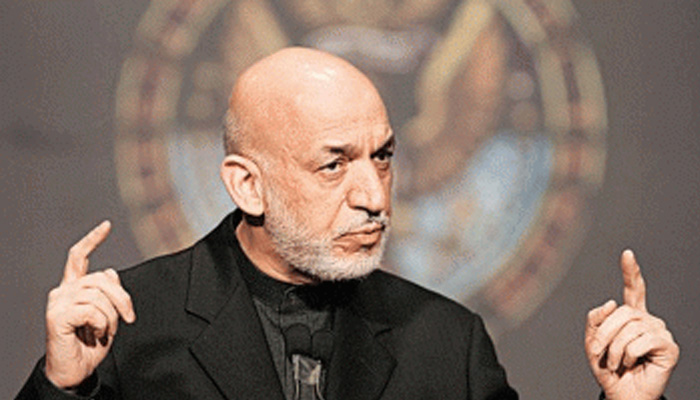Hamid karzai at the huddle
February 12, 2017 | Expert Insights
Should India assume a larger role?
On 10 Feb 17, former President of Afghanistan Hamid Karzai, speaking at the Hindu Group sponsored Huddle: Conversations for Change, delivered the keynote address on the topic ‘Strategic Arc for South Asia’. He was hosted by Shri N Ram, Chairman Kasuri & Sons Ltd.
The key message the former President delivered was that in order to achieve lasting peace in trouble-torn Afghanistan, there was a need for all collaborators to work towards peace and development in the region. He believed India with its’ civilizational power should play a key-leadership role. At this juncture, the new leadership in the US was sending mixed signals.
Is the Indian Nation Far Bigger than the Indian State?
In 1976, Hamid Karzai was accepted as an exchange student for the Master’s program in International Relations & Political Science, with the Himachal Pradesh University. Thus, began his openly professed respect and admiration for Indian culture. He believes India’s influence in History, Religion, Culture, Trade and Education transcends beyond its’ borders and makes the whole South Asian region, a common cultural entity. Particularly for Afghans, India represents the idea of opportunity, which many of his countrymen have used to find expression for their talents. Dilip Kumar, Madhubala, Mumtaz, Aamir Khan, Irfan Khan and Shah Rukh Khan are some talented Bollywood personalities, who claim Afghan origins. Indians, perhaps without exception, identify with this larger cultural identity and would support measures to integrate the region.
What are the Challenges to Regional Integration?
The former President said that he had made more than 20 official visits to Pakistan, to strengthen regional relationships. However, it is politics and not the Pakistani people that prevents the larger engagements. There are influential sections in the Pakistan’s establishment that does not want a strengthening of India-Afghanistan relations. Hamid Karzai believes Afghanistan has the right to pursue an independent foreign policy and they would continue to thwart attempts by other nations to influence it. The former President said that at their behest, a meeting on Afghanistan, to be held in Moscow on 15 Feb 17, had been expanded to include India,. The other participating nations were China, Pakistan and Iran. He firmly believes that India should be part of any lasting solution for Afghanistan.
Should India Also Partake in the One Belt One Road (OBOR) Initiative?
The former President pointed out that India has already contributed to this initiative by constructing the 215 Km Delaram - Zaranj Highway. However, India was confronted with two alternatives, in providing Indian Ocean access to Afghanistan and Central Asian Republics; either through Iran or through Pakistan. The route through Pakistan is being developed by China through the US$ 46 billion China-Pakistan Economic Corridor (CPEC). The alternative route is through the Iranian port of Chabahar. Pakistan is unlikely to encourage Indian participation in the CPEC, though China may think otherwise.
President Karzai candidly admitted that the current Pakistani leadership was neither likely to rein-in the Afghan-Taliban movement nor encourage greater Indian involvement in the region.
What are Strategic Prerequisites for Peace in Afghanistan?
President Karzai recommended a stronger Indian engagement in the region. He said Russia was an old friend of India and with the expected improvement in US-Russian relations, both Russia and India could play a cooperative role. He said China was a resourceful country and the OBOR initiative could bring economic benefit to the region. He understood that China-India relations were constrained by the 1962 war but improved relations between these two Asian powers would benefit the region, as a whole.
Assessment
When confronted with a choice between Pakistan and India, the former President clearly realizes better long-term prospects for his country, with India. However, from the Afghan’s point of view, India’s strained relations with China and Pakistan are impediments to peace and development in Central Asia. He strongly recommends increased Indian engagement with the region, improved Indo-China relations with possible Indian participation in the CPEC and a radical shift in Pakistan policy to both Afghan Taliban and India. It appears that a new chapter in the Great Game, for the control of the heart of Asia, is about to unfold. Perhaps, this time ‘civilization’ power rather than ‘military’ power, may have a more profound impact.


